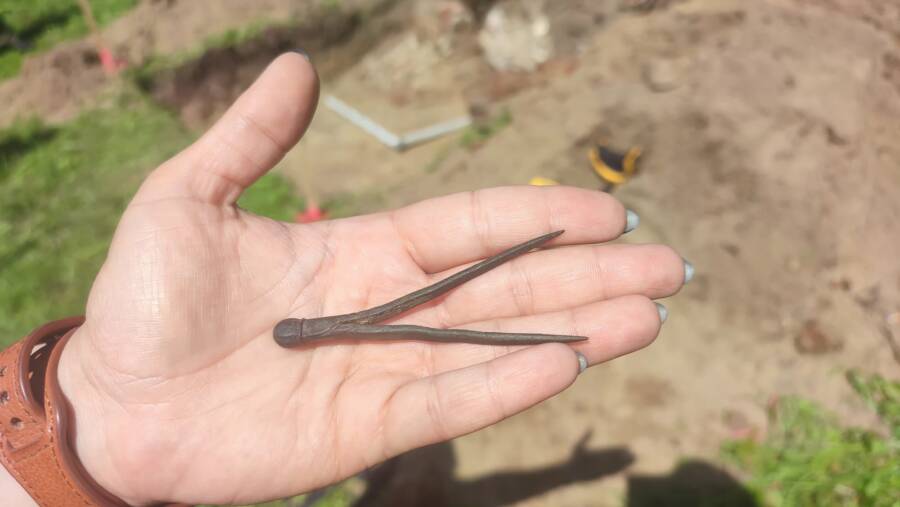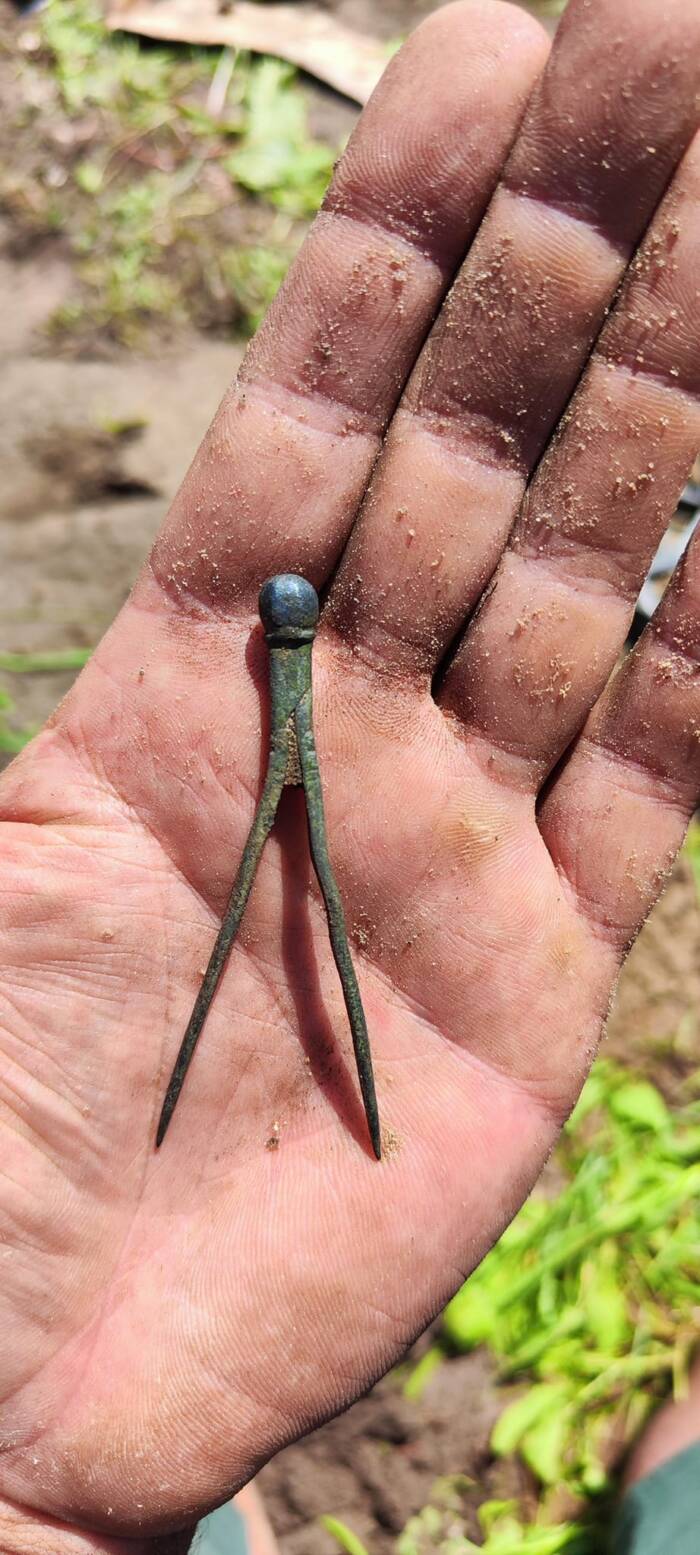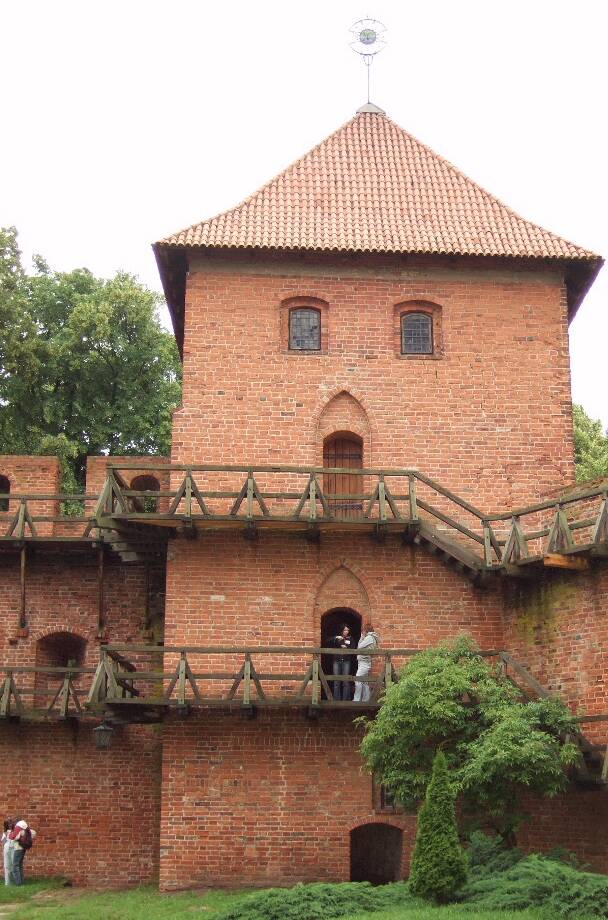The compass was found in Frombork, Poland, where the astronomer Nicolaus Copernicus lived for 30 years.

Warmińska Grupa Eksploracyjna/FacebookThe compass is made of copper alloy and dates back to the 16th century.
Nicolaus Copernicus famously wrote himself into history by looking up at the sky and speculating that the Sun, not the Earth, was at the center of the universe. Now, amateur archaeologists in Poland have made a discovery about Copernicus himself by looking down at the ground — and discovering a 16th-century compass in the gardens where he once worked.
The tiny copper compass dates back to the 16th century and, according to a local museum, “could have belonged to Nicolaus Copernicus himself.”
Discovering The Compass In Frombork, Poland

MISJA SKARB/FacebookThe compass was found in the gardens where Copernicus did much of his astronomical work.
Over 400 years ago, Nicolaus Copernicus conducted many of his astronomical observations in a garden in Frombrock, Poland. This August, a group of amateur archaeologists decided to search the gardens for a legendary tunnel that Copernicus purportedly used to travel between the building where he worked and the town’s cathedral.
According to local media, the two groups were working under the supervision of professional archaeologists when they came across the tiny compass, which is made of copper alloy and dates back to the 16th century.
“In the garden where Nicolaus Copernicus made his astronomical observations, we found a compass dating back to the beginning of the 16th century,” one of the groups, MISJA SKARB, wrote on Facebook. “This incredible discovery not only takes us back in time to the period when Copernicus was making his groundbreaking discoveries, but also opens up new possibilities to understand his methods of working.”
The compass is the third of its kind to be found in Poland, and the second to be found in Frombork’s gardens. According to an employee from the Nicolaus Copernicus Museum in Frombork, Zorjana Polenik, the compass “could have belonged to Nicolaus Copernicus himself.”
The 30 Years Nicolaus Copernicus Spent In Frombork

Public DomainNicolaus Copernicus spent the last three decades of his life in Frombork, Poland.
Born in 1473 in Toruń, then a province of Royal Prussia, Nicolaus Copernicus is best known for his work On the Revolutions of the Heavenly Spheres, which argued that Earth and the other planets revolved around the sun. This went in the face of scientific beliefs at the time, which stated that Earth was the center of the universe and orbited by the sun, the moon, and the stars.
On the Revolutions of the Heavenly Spheres was published at the very end of Copernicus’s life, in 1543, the year he died. The astronomer had spent the previous three decades working and living in the town of Frombork.
There, in the northern part of Poland, Copernicus made many of his astronomical observations. He worked as a canon in the town’s cathedral and spent time in the nearby gardens — and it was in the canonical gardens that the amateur archaeologists came across the tiny copper compass.
They made other discoveries there as well. During their search of the gardens, the archaeological teams also came across the corner of a building once used by monks and the entrance of one of its partially collapsed cellars. The gardens near Copernicus’ canonry also probably once held a pavimentum, where the astronomer would set up his instruments, but archaeologists have found no sign of this — yet.

Hans Weingartz/Wikimedia CommonsNicolaus Copernicus’ tower in Frombork.
That said, the compass is an exciting find. Whether or not it belonged to Copernicus, it’s an evocative reminder of our long and ongoing quest to understand the universe.
After reading about this 16th-century compass that might have belonged to Nicolaus Copernicus, discover the story of the Winged Hussars, Poland’s fearsome cavalry troops that went to battle with wings on their back. Or, learn about Stańczyk, the most famous court jester in Polish history.





